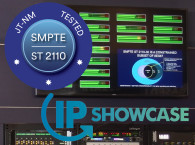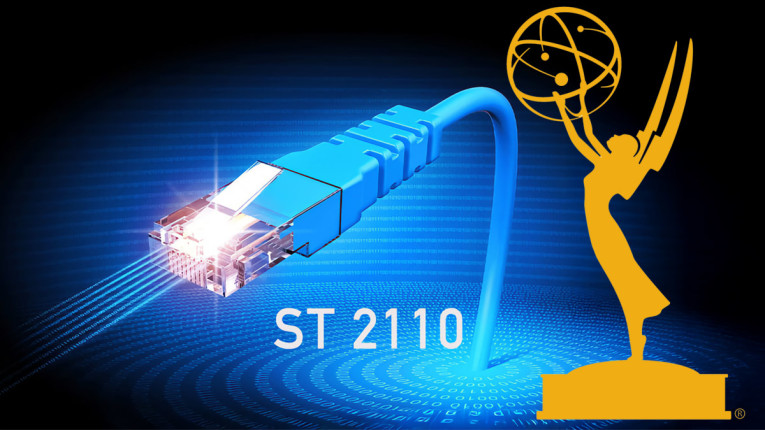
The Engineering, Science & Technology Emmy Awards recognize developments and innovations that materially affect the television viewing experience. They are awarded annually by the Academy of Television Arts & Sciences (ATAS). The three industry organizations will be recognized for their pioneering work in the development of the ST 2110 suite of standards, which has transformed media production and distribution worldwide. The award will be presented at the Television Academy's 77th Engineering, Science & Technology Emmy Awards ceremony in Los Angeles on Tuesday, October 14, 2025.
SMPTE ST 2110 is a suite of standards developed by SMPTE, EBU, and VSF for transmitting uncompressed and compressed video, audio, and data over Internet Protocol (IP) networks in professional live TV production environments. It emerged as a replacement for a more rigid infrastructure based on the traditional Serial Digital Interface (SDI), offering greater flexibility and scalability. It is now widely adopted around the world for live media production and other applications, enabling new and more efficient ways to produce live TV content in a low-latency fashion.
“I’m extremely proud of the entire SMPTE team, both staff and members, alongside our partners at EBU and VSF,” said SMPTE President, Richard Welsh. “Their dedication and hard work bringing ST 2110 to the industry is deservedly honored with this fantastic recognition from the Television Academy.”
“Standards are in the DNA of SMPTE, going right back to our founding in 1916, but still as relevant today in helping the industry bring content and amazing experiences to the world. This Emmy recognizes the huge effort and innovation that happens, often in the background or out of public view, but is so essential to bringing all forms of media to audiences,” adds Welsh.
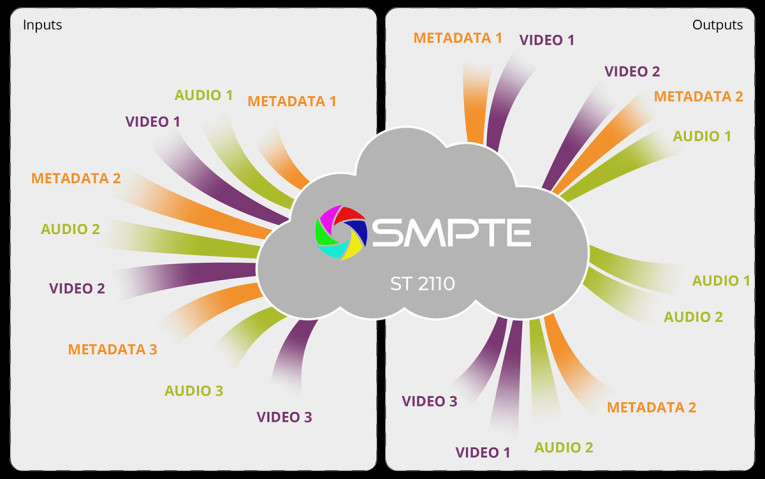
Published as ST 2110 by the SMPTE, the specification has emerged as the de facto replacement for the once ubiquitous SDI systems, and now underpins digital live content transmission globally and is widely adopted by broadcasters, service providers, and technology vendors. The standard, which is complemented by a number of supporting technologies, also provides the foundations for continued innovation in live media content production, including in cloud environments.
“What we witnessed during early trials of IP-based studios with several EBU members was a clear call from production teams for greater efficiency and flexibility. That wish from production became our driving force, inspiring us to launch the collaborations on this standard that could shape the future of live production,” said Willem Vermost, Senior Media Technology Architect at EBU.
Felix Poulin, who led the EBU's work on IP production infrastructures at the time and is now Director of Global Collaborations at CBC/Radio-Canada, added: “It is wonderful to see how the combined work that we started some 10 years ago has paid off. ST 2110 has moved far beyond being an emerging technology and now provides the efficiency and power that the most future-proof production facilities in the world are built on."
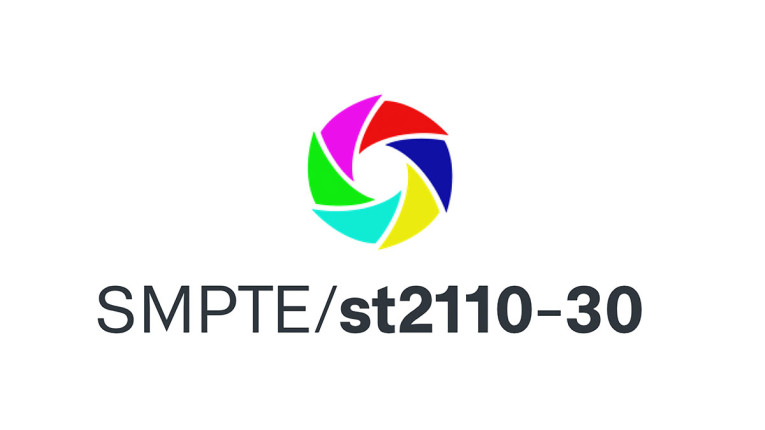
The SMPTE is a global society of media professionals, technologists, and engineers working in the digital entertainment industry. The Society fosters a diverse and engaged membership from both the technology and creative communities, delivering vast educational offerings, technical conferences, and exhibitions, the SMPTE Motion Imaging Journal, and access to a rich network of colleagues essential to their career success. As an internationally recognized standards organization, SMPTE also provides a vital technical framework of engineering standards and guidelines that allow the seamless creation, management, and delivery of media for art, entertainment, and education worldwide.
The European Broadcasting Union (EBU) is the world’s leading alliance of public service media, representing 113 member organizations in 56 countries, and an additional 31 Associates in Asia, Africa, Australasia, and the Americas. The organization’s mission is to make public service media indispensable.
The Video Services Forum (VSF) is an international association that brings service providers, manufacturers, and users together to promote interoperability, establish quality metrics, and provide education focused on video networking technologies. VSF activities centered around video networking technologies include identifying issues involving the development, engineering, installation, testing, and maintenance; facilitating the exchange of non-proprietary information to promote the development and foster resolution of common issues; and promoting interoperability by contributing to and supporting standards development by national and international standards bodies.
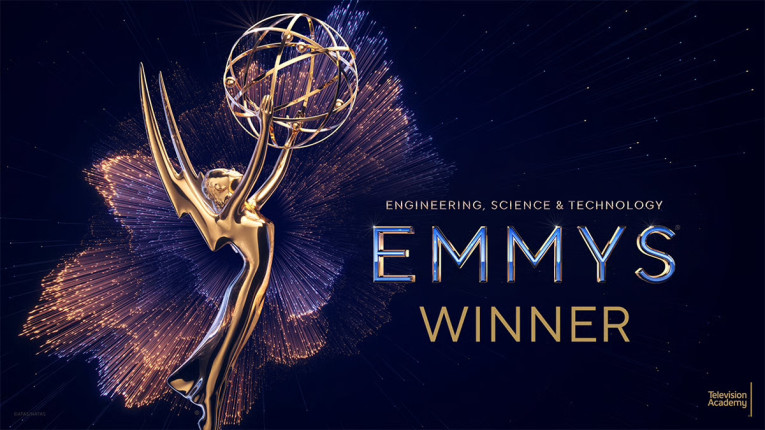
SMPTE 2110 was based on the TR-03 (Transport of Uncompressed Elementary Stream Media over IP), and TR-04 (Utilization of ST-2022-6 Media Flows within a VSF TR-03 Environment) work published by the Video Services Forum on November 2015. The first four parts of SMPTE 2110, -10, -20, -21, and -30, were published by SMPTE on 27 November 2017. Other parts, including recommended practices, were added later, and several parts were updated in 2022.
The SMPTE ST 2110 standards define support for linear PCM (16 or 24-bit), AES67-compliant streams, and AES3-formatted audio, enabling professional, uncompressed audio transport over IP networks using standardized timing and packet protocols. Linear PCM can carry up to 8 channels per stream, and AES3 (AES/EBU) is used for encapsulating legacy digital audio (including formats like Dolby E), carried in ST 2110-31. Dante and Ravenna transport protocols, as well as AES67 as an interoperability standard, are supported.
www.smpte.org
www.ebu.ch
www.vsf.tv




